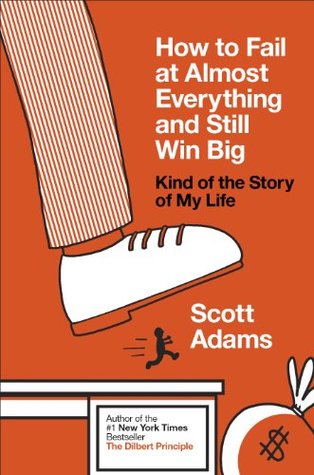More on this book
Community
Kindle Notes & Highlights
by
Scott Adams
Read between
January 18 - May 7, 2022
My proposition is that if you study people who succeed, you will see that most of them follow systems, not goals. When goal-oriented people succeed in big ways, it makes news, and it makes an interesting story. That gives you a distorted view of how often goal-driven people succeed.
The minimum requirement of a system is that a reasonable person expects it to work more often than not.
Warren Buffett’s system for investing involves buying undervalued companies and holding them forever, or at least until something major changes. That system (which I have grossly oversimplified) has been a winner for decades. Compare that with individual investors who buy a stock because they expect it to go up 20 percent in the coming year; that’s a goal, not a system. And not surprisingly, individual investors
My mother, in the style of the times, told me I could do anything I set my sights on. She said I could be the president, an astronaut, or the next Charles Schulz. I believed her because at that point in my life I hadn’t yet noticed the pattern of her deceptions. Her lies included Santa Claus, the Tooth Fairy, the Easter Bunny, and something about a whale eating a guy named Jonah.
I wanted the product to be something that was easy to reproduce in unlimited quantities. I didn’t want to sell my time, at least not directly, because that model has an upward limit. And I didn’t want to build my own automobile factory, for example, because cars are not easy to reproduce.
In the near term it would mean one failure after another. In the long term I was creating a situation that would allow luck to find me.
This was one of many examples in which the universe makes sure there isn’t much of a link between job performance in the corporate world and outcomes.
For starters, when it comes to the topic of generosity, there are three kinds of people in the world: Selfish Stupid Burden on others That’s the entire list. Your best option is to be selfish, because being stupid or a burden on society won’t help anyone.
The main reason I blog is because it energizes me. I could rationalize my blogging by telling you it increases traffic on Dilbert.com by 10 percent or that it keeps my mind sharp or that I think the world is a better place when there are more ideas in it. But the main truth is that blogging charges me up. It gets me going. I don’t need another reason.
So while writing takes me away from my friends and family for a bit, it makes me a better person when I’m with them. I’m happier and more satisfied with my life. The energy metric helps make my choices easier.
When you don’t know anything about a particular topic, it’s easy to assume it would be too hard to learn it quickly.
Free yourself from the shackles of an oppressive reality. What’s real to you is what you imagine and what you feel. If you manage your illusions wisely, you might get what you want, but you won’t necessarily understand why it worked.
My optimism is like an old cat that likes to disappear for days, but I always expect it to return.


